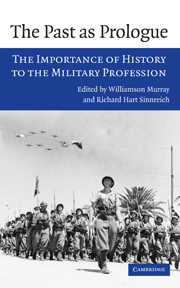2 - Military history and the history of war
Published online by Cambridge University Press: 05 June 2012
Summary
When the first university chair in our subject was established at Oxford in the first decade of the twentieth century, its field was defined simply as “Military History,” and it took two world wars to broaden this to the “History of War.” I have no firm evidence for this, but I suspect that the change was made to make it clear that the incumbent was expected to cover naval and air matters as well.
The same enlargement occurred in the scope of the only other similar chair in this country, which was established after the First World War at King's College London for Lloyd George's nemesis, General Sir Frederick Maurice, and about this I can speak with greater authority. The people responsible for reviving it after the Second World War were not military men; they were academics in the University of London who had been involved in the civilian conduct of the war – economists like Lionel Robbins, social historians like Sir Keith Hancock, diplomatic specialists like Sir Charles Webster. They knew from personal experience that the conduct of war was too serious a business to be left to the generals and believed in consequence that the study of war was too important to be left to military historians. The scope that they had in mind was so wide that they were not sure how to define it.
- Type
- Chapter
- Information
- The Past as PrologueThe Importance of History to the Military Profession, pp. 12 - 20Publisher: Cambridge University PressPrint publication year: 2006
- 6
- Cited by



